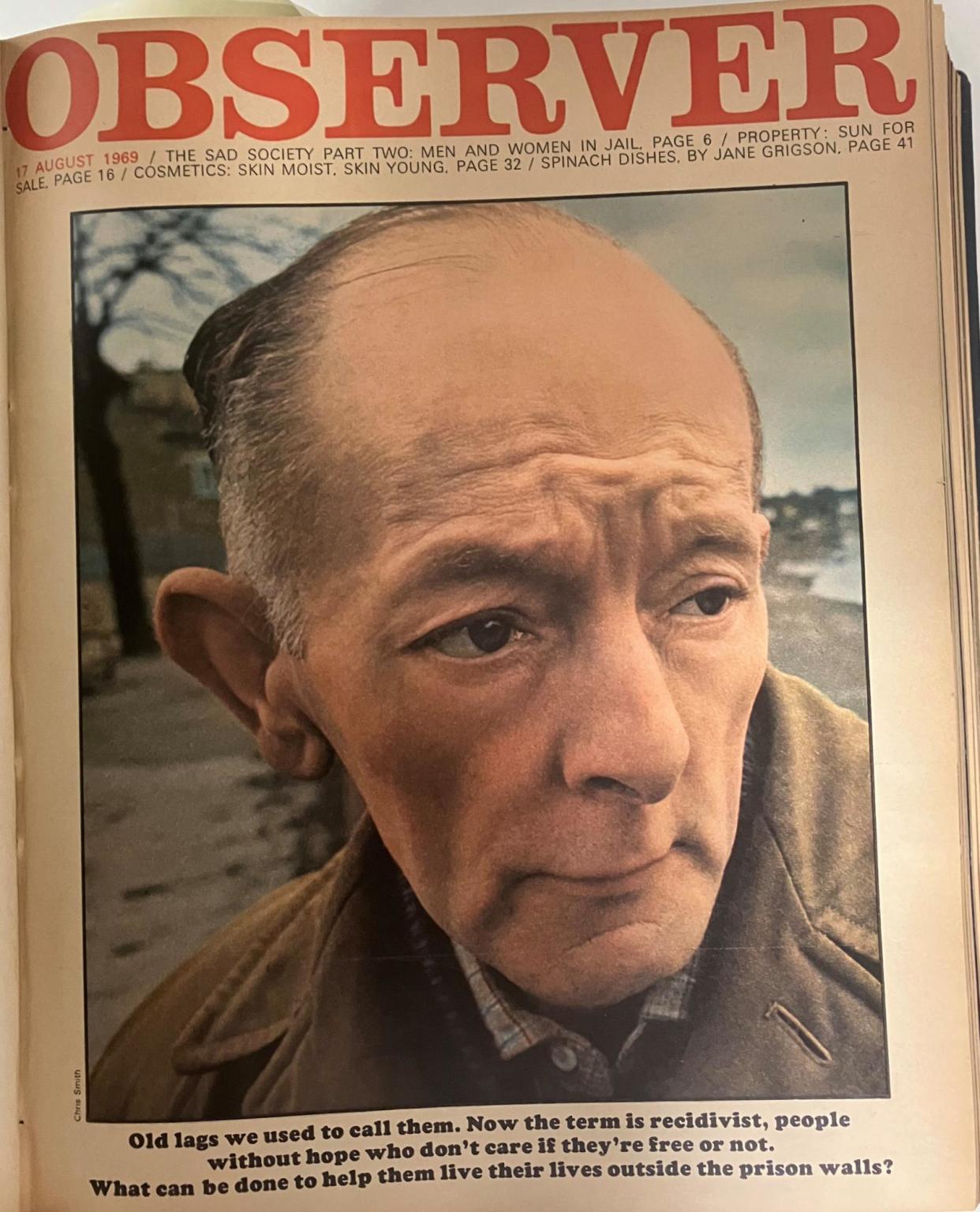Doing time: interviews with repeat offenders, 1969

For the issue of 17 August 1969, Observer Magazine talked to people for whom prison was a second, or even their main, home. The gaunt face on the cover is Ron Paterson’s, shaped by more than 20 convictions for petty offences plus ‘eight years’ preventive detention as an incorrigible rogue’. A year later, Paterson put himself back inside. ‘He picked up the handbag and stood holding it until he was noticed.’
Prison became ‘just like falling off a log, you got so used to it’
‘I just waited, gave myself up practically. I don’t know why,’ he said. Perhaps the war? Paterson’s girlfriend was killed by a bomb; he suffered ‘nervous depression’ after he was demobbed. But at 47, he still found his own motives mysterious, hoping for ‘a hospital which understands me, where… they could find out why I do these things.’
‘I knew there was something wrong with me,’ Patrick Donnelly, 25, said. He had lost his mother aged seven and was ‘reared on the streets’. Multiple stints in borstal, psychiatric hospitals and prison left him institutionalised: he walked with his hands behind his back because he was used to prison jackets with a single pocket. Now out, he was trying to find a place in the world – work, friends, managing money – but remained philosophical: ‘I don’t know what I would have been like now if it had been different, because it wasn’t.’
‘I liked it better inside,’ confessed Kenny Smith, 36. ‘Short, slight, tough, a gruff urchin with stumpy fingers,’ she found lesbian life easier in prison: ‘they don’t seem to frown on it.’ First appearing in juvenile court aged eight, Smith had accumulated sentences for theft, possession of ‘Indian hemp’ and drunkenness. Going back inside became ‘just like falling off a log, you got so used to it.’ She even went to a police station once and ‘asked to be taken back’ (they sent her away). Smith had been straight for three years, with a steady garage job that gave her life meaning but, the journalist concluded, ominously: ‘She lost it shortly after I met her.’


